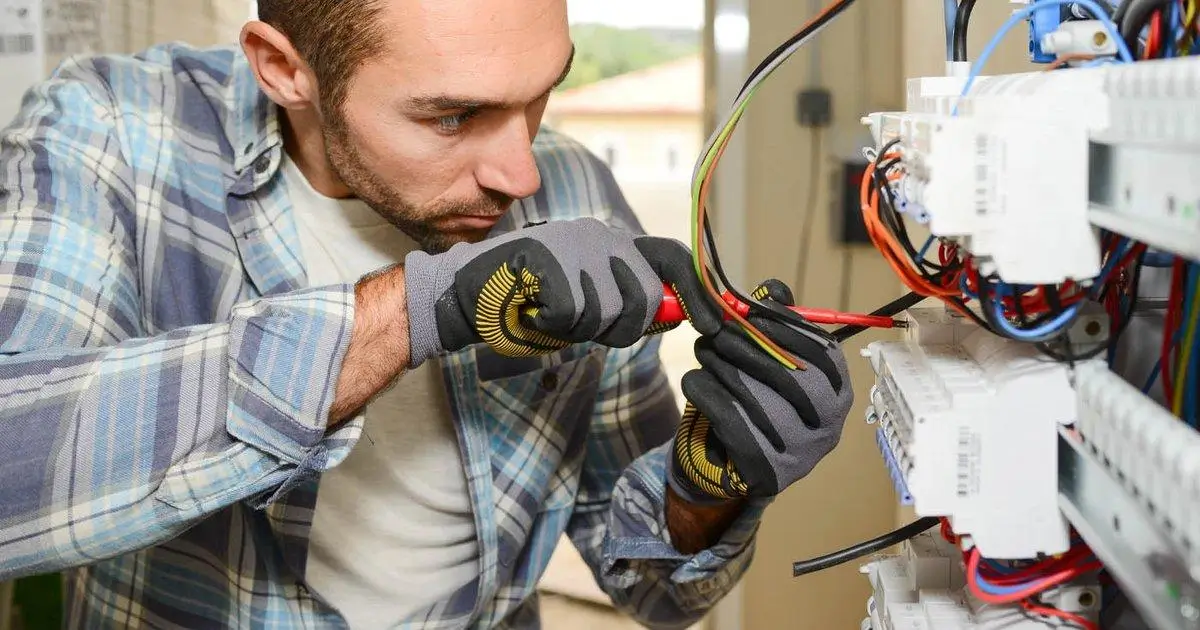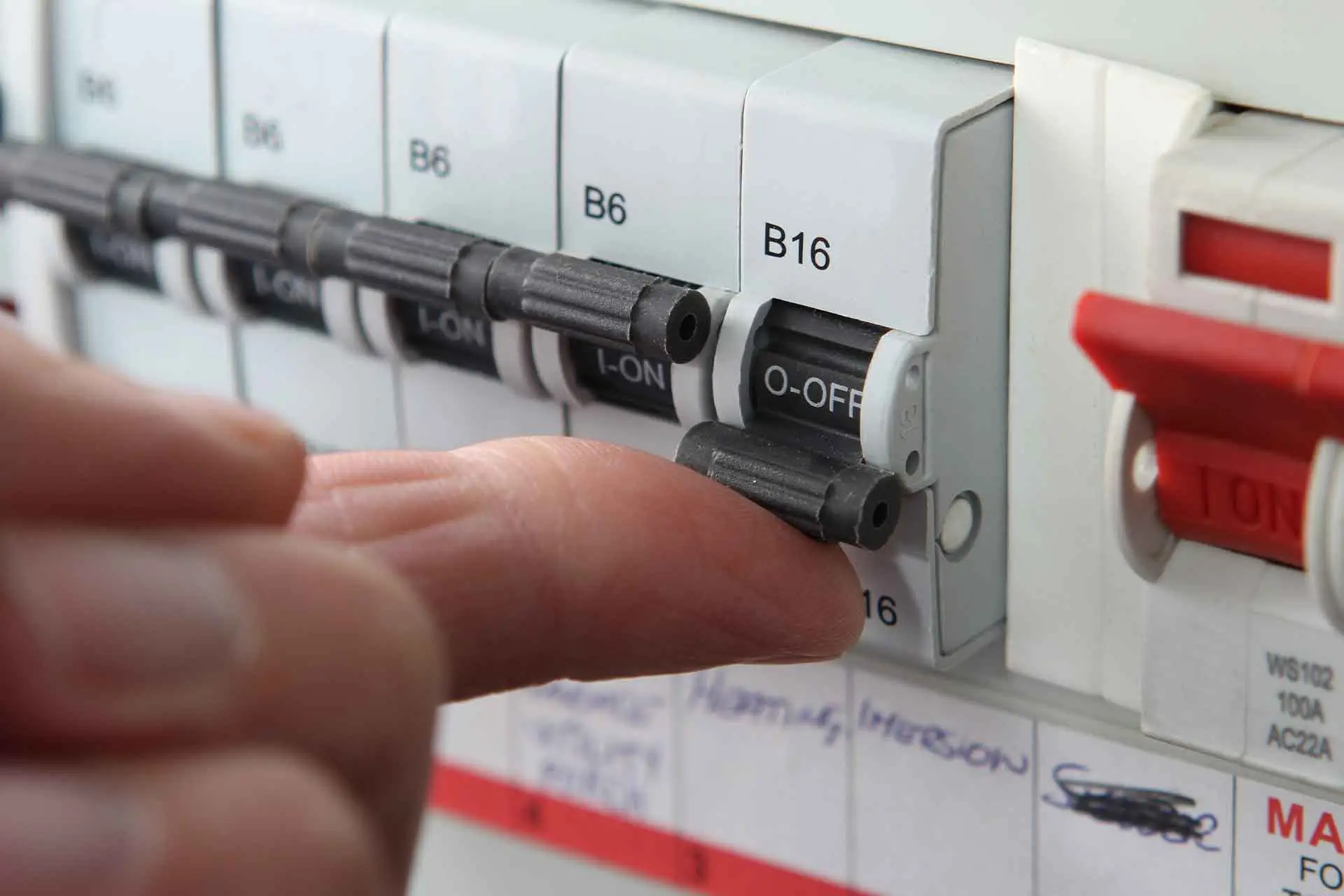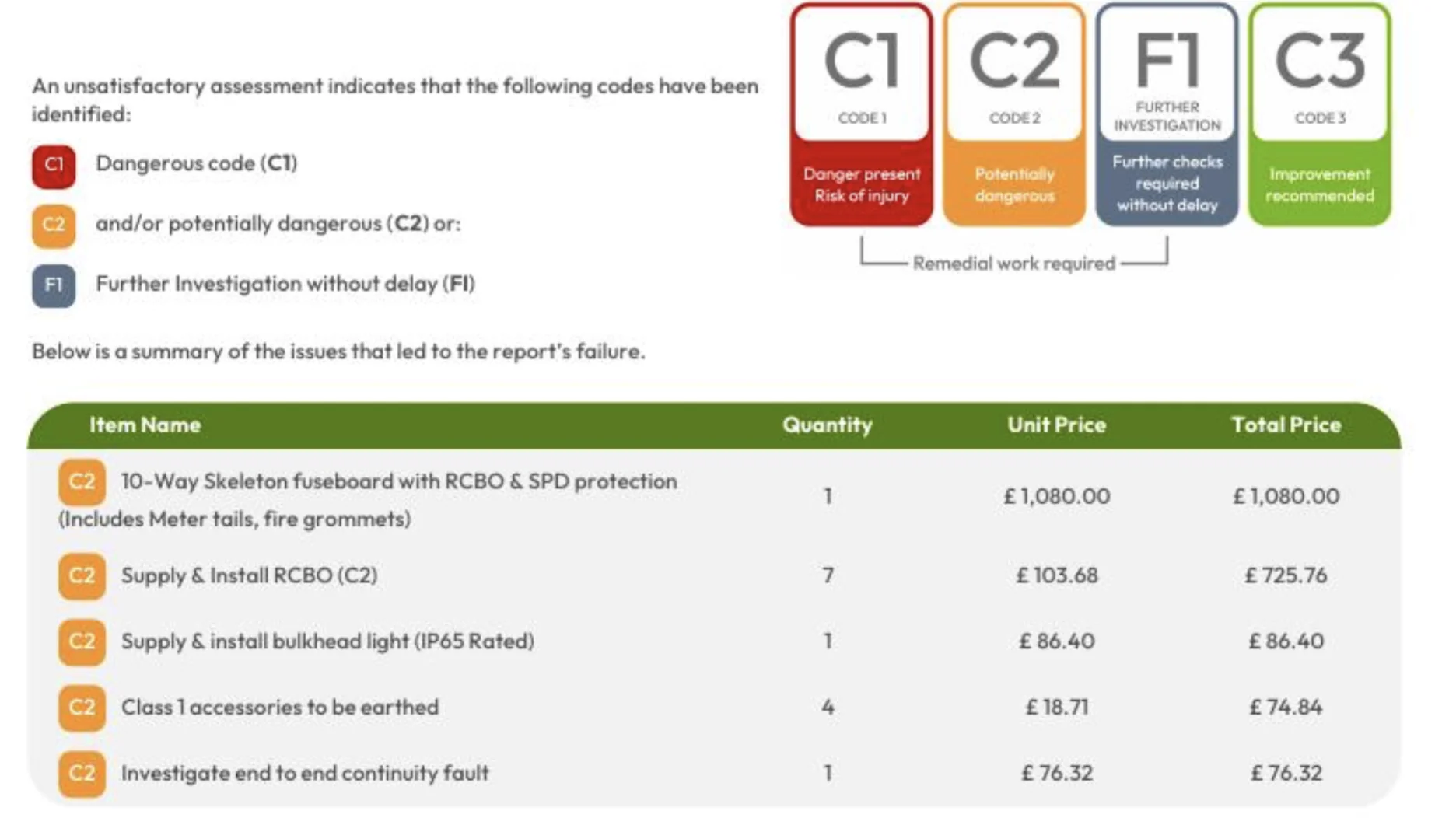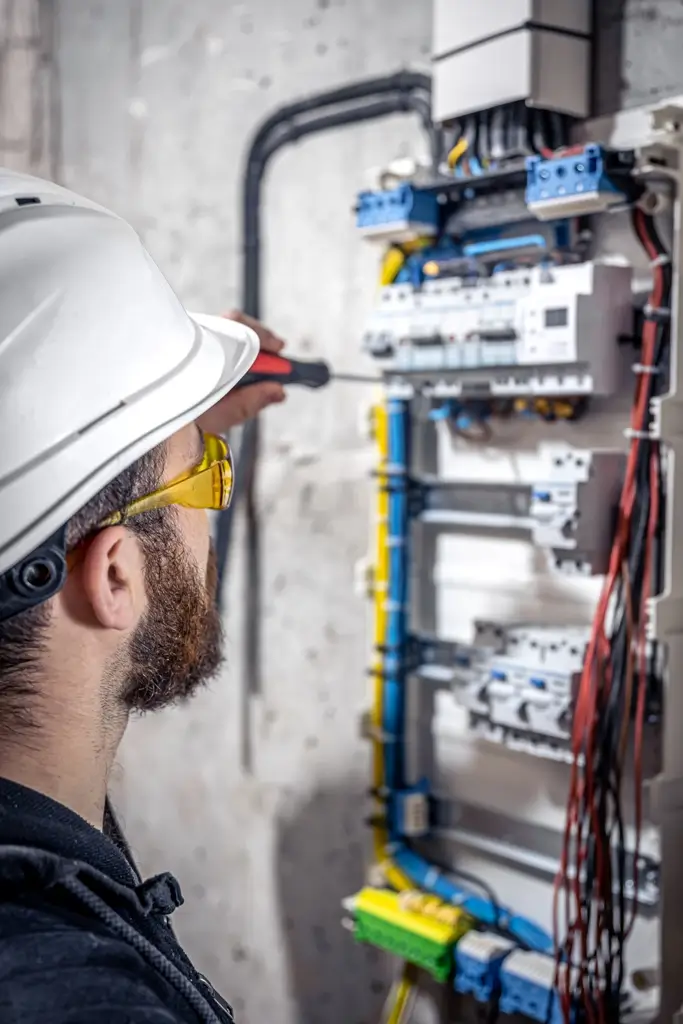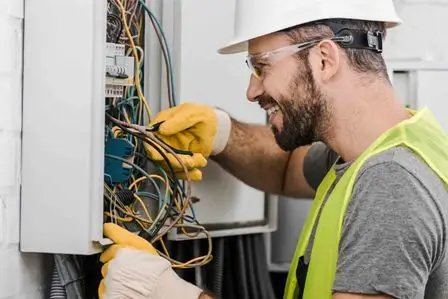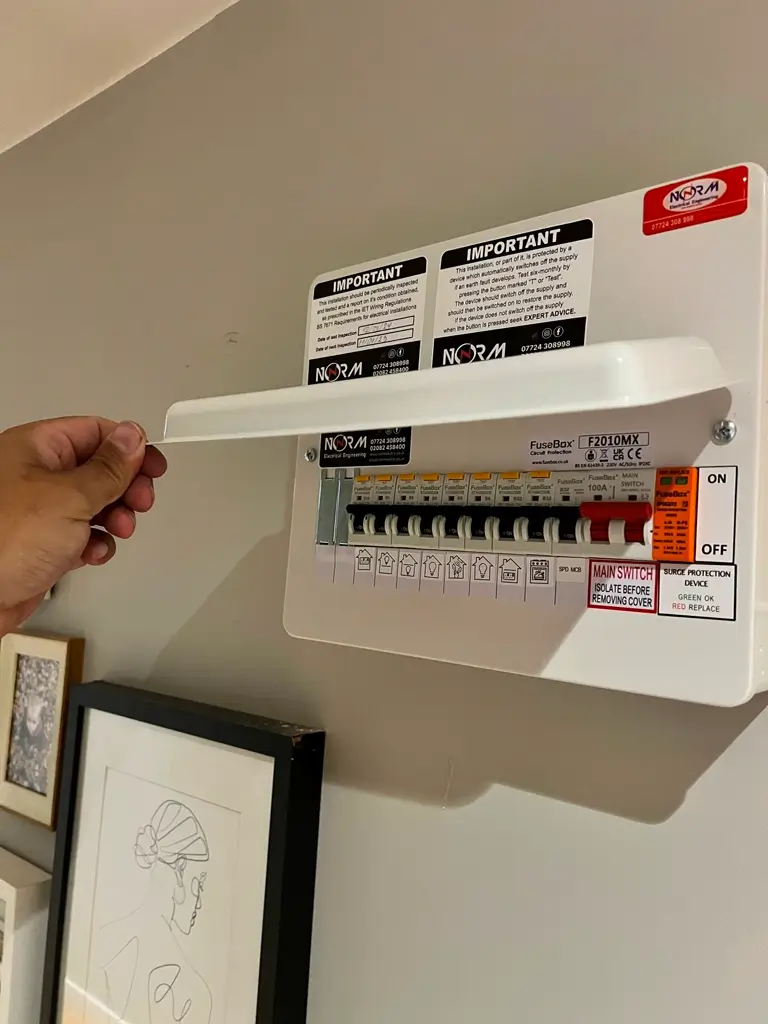How to Choose a Qualified Electrician: 7 Questions to Ask Before You Hire
Introduction:
Hiring an electrician isn’t something you want to take lightly. Whether you’re dealing with simple electrical repairs, wiring upgrades, or a major electrical issue, choosing the right professional can make all the difference. A qualified electrician ensures the job is done safely and efficiently, while an unqualified one could risk your property and safety.
At Norm Electrical Engineering, we understand how important it is to find a trusted, qualified electrician. That’s why we’ve put together this guide, offering 7 key questions you should ask any electrician before hiring them. By asking these questions, you’ll be able to make an informed decision and ensure your electrical needs are met to the highest standards.
Why It’s Important to Choose the Right Electrician 🔑
Electrical work is inherently dangerous. Faulty wiring or improper installations can lead to fires, electric shocks, or property damage. Electrical Safety First highlights that poor electrical workmanship accounts for a large portion of domestic electrical incidents in the UK.
That’s why it’s essential to hire a licensed and experienced electrician. Gov.uk provides guidelines on the safety standards you should expect from any professional tradesperson.
Now, let’s dive into the 7 critical questions you should ask when choosing an electrician.
1. Are You Fully Qualified and Licensed? 📜
Why This Is Important: The first thing you should ask any potential electrician is whether they are fully qualified and licensed. In the UK, electricians should be certified under a recognized National Inspection Council for Electrical Installation Contracting (NICEIC) or equivalent body, such as Stroma or Elecsa.
| Accreditation | Details |
|---|---|
| NICEIC | A trusted UK accreditation body for electrical contractors. |
| Stroma | Another recognized certification for electrical professionals. |
| Elecsa | Certifies electricians to meet UK safety and quality standards. |
Why You Need This: A qualified electrician is crucial because they know how to carry out work to meet safety standards, and their work is more likely to pass inspections. If they are not certified, you risk potential safety hazards and might void home insurance.
What to Do: Ensure that the electrician is licensed by checking their credentials. You can ask for their certification or verify it through organizations like NICEIC.
2. Do You Have Public Liability Insurance? 🛡️
Why This Is Important: Electrical work is inherently risky, so insurance is essential. A qualified electrician should have public liability insurance to cover any potential accidents, damages, or injuries caused during the work.
| Type of Insurance | What It Covers |
|---|---|
| Public Liability | Covers damages to property or injury caused during work. |
| Employer’s Liability | Covers injuries to employees (if applicable). |
Why You Need This: Without proper insurance, if something goes wrong, you could be held financially responsible for damages. This is especially important for high-risk jobs like rewiring, which could potentially cause fire or electrical accidents.
What to Do: Ask for proof of their public liability insurance. A reputable electrician should be happy to provide this information.
3. Can You Provide References or Reviews? 📝
Why This Is Important: A good electrician should have a track record of satisfied customers. Asking for references or checking online reviews helps you gauge the quality of their work and their reputation.
| Source of Reviews | What It Tells You |
|---|---|
| Google Reviews | Provides a broad perspective on customer satisfaction. |
| Trustpilot | More detailed reviews from previous customers. |
| Word of Mouth | Personal recommendations from friends or family. |
Why You Need This: Customer feedback can help you understand whether the electrician is reliable, trustworthy, and competent. You want someone who has proven experience delivering quality work.
What to Do: Ask the electrician for references or check online reviews. Google Reviews, Trustpilot, and trade association websites are great places to start.
4. What’s Your Estimated Timeline for Completion? ⏳
Why This Is Important: Knowing how long the work will take is crucial for planning and expectations. A professional electrician should be able to provide an accurate estimate for the timeline based on the scope of the job.
| Type of Project | Average Time to Completion |
|---|---|
| Minor Repairs | 1-2 hours |
| Wiring Upgrades | 1-3 days |
| Full Rewiring | 3-5 days or more |
Why You Need This: A clear timeline helps you manage your schedule, minimize disruption, and prevent delays. It also demonstrates that the electrician is well-organized and experienced in handling similar projects.
What to Do: Ask for a written timeline of how long the job is expected to take. Ensure they stick to the schedule once the work begins.
5. Will You Provide a Written Estimate? 💰
Why This Is Important: A professional electrician should provide you with a written estimate outlining the cost of the job, including materials, labour, and any unexpected charges.
| Estimate Type | What It Covers |
|---|---|
| Fixed Price Estimate | A set price for the job, regardless of the time taken. |
| Hourly Rate Estimate | Charges based on the time the job takes. |
Why You Need This: A written estimate ensures transparency and helps avoid surprise charges at the end of the project. Without this, you may end up paying far more than you expected.
What to Do: Request a written estimate before any work begins. This helps protect both you and the electrician by clearly outlining costs.
6. Are You Familiar with Local Electrical Codes and Regulations? 🏗️
Why This Is Important: Electrical regulations and safety codes can vary depending on your location. A good electrician will be familiar with local codes to ensure the work is compliant and safe.
| Source of Regulation | What It Covers |
|---|---|
| Gov.uk – Electrical Safety | Guidelines on safety standards in the UK. |
| Part P Regulations | Legally required for electrical work in the home. |
Why You Need This: An electrician familiar with local codes ensures the work will be up to standard, reducing the risk of safety issues, non-compliance, and potential fines.
What to Do: Ensure that the electrician understands and follows UK regulations, including Part P (electrical safety rules for homes).
7. Do You Offer a Warranty for Your Work? 🛠️
Why This Is Important: Reputable electricians stand behind their work by offering a warranty or guarantee. This means that if something goes wrong after the job is completed, they will fix it at no extra charge.
| Type of Warranty | What It Covers |
|---|---|
| Workmanship Guarantee | Covers repairs to any issues caused by poor workmanship. |
| Parts Warranty | Covers parts or materials used in the job. |
Why You Need This: A warranty provides peace of mind that the electrician will take responsibility for their work and any issues that arise post-installation.
What to Do: Ask for a written warranty or guarantee for the work completed. Make sure you understand the terms and duration.
Conclusion:
Hiring a qualified electrician is essential for ensuring the safety, efficiency, and quality of your electrical work. By asking these 7 questions before hiring, you can make an informed decision and avoid unnecessary risks.
At Norm Electrical Engineering, we are committed to providing top-notch electrical services that meet UK safety standards. Our team of certified electricians is ready to assist with all your electrical needs.
For more information or to request a consultation, visit Norm Electrical Engineering.
Helpful Links:
Gov.uk – Electrical Safety First: Official government guidelines on electrical safety.
Electrical Safety First: Trusted advice on electrical safety for UK homeowners.

